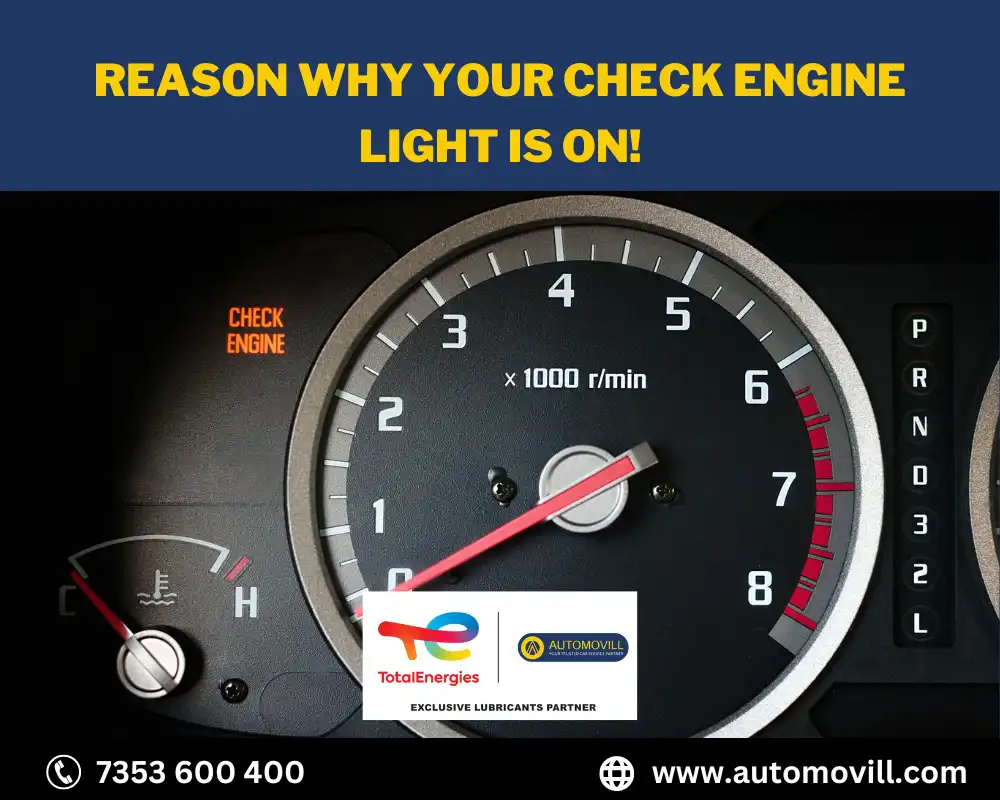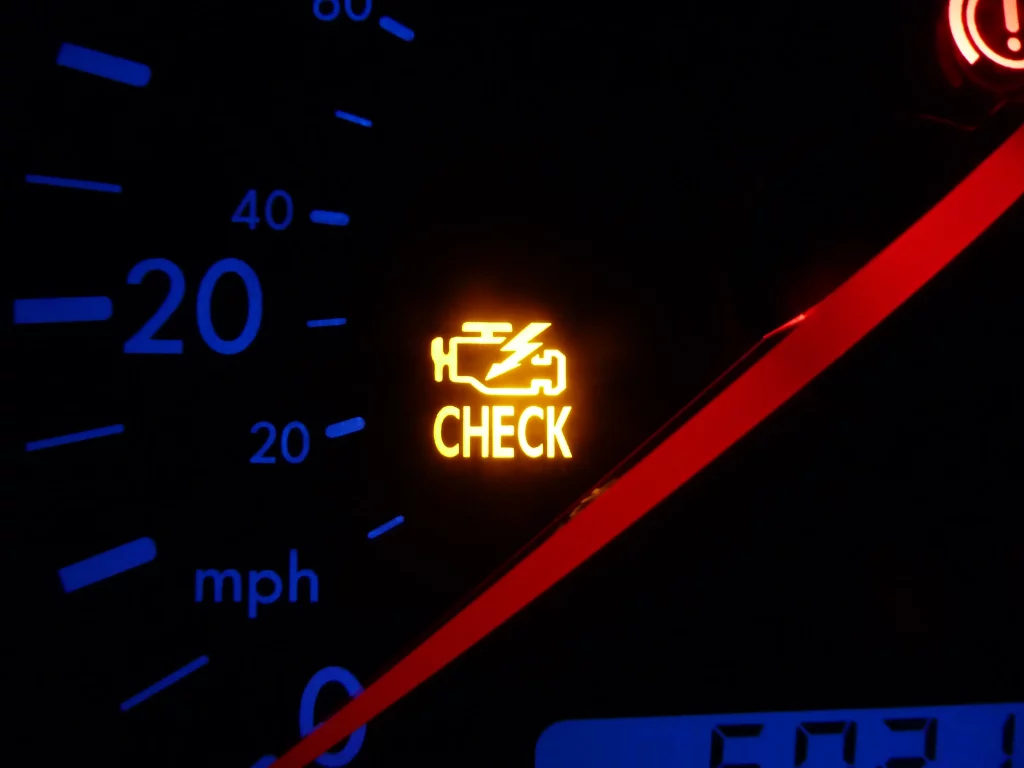
Have you ever experienced that sinking feeling when you’re driving along, and suddenly the check engine light illuminates on your dashboard?
It’s a dreaded sight for many car owners, as it often implies that something is amiss with their vehicle. While it’s tempting to panic or ignore the warning, understanding the possible reasons behind the check engine light can help you make informed decisions about your car’s maintenance and potentially save you from costly repairs down the line.
In this blog, we’ll explore some common reasons why your check engine light might be on.
7 Reasons Why Check Engine Light ON
Here we go:

1) Loose or Damaged Gas Cap
Believe it or not, a loose or damaged gas cap is one of the most frequent culprits for triggering the check engine light.
The gas cap helps to keep the fuel system under pressure and prevent harmful fumes from escaping.
If it’s loose, damaged, or missing altogether, it can lead to a disruption in the fuel system’s pressure, triggering the check engine light. Thankfully, this issue is easily rectifiable by ensuring the gas cap is tightly secured.
2) Faulty Oxygen Sensor
The oxygen sensor plays a crucial role in monitoring the amount of oxygen in the exhaust gases. It helps regulate the fuel-to-air ratio, ensuring optimal engine performance and reducing harmful emissions.
When the oxygen sensor failure happens, it can affect the engine’s efficiency and trigger the check engine light. It’s important to address this issue promptly, as a faulty oxygen sensor can decrease fuel economy and potentially damage other engine components.
3) Malfunctioning Catalytic Converter:
The catalytic converter is responsible for converting harmful pollutants in the exhaust gases into less harmful emissions. Over time, it can become clogged or damaged due to normal wear and tear, leading to decreased engine performance and triggering the check engine light.
A malfunctioning catalytic converter not only compromises your vehicle’s environmental friendliness but can also impact fuel efficiency and overall engine health.
4) Faulty Mass Airflow Sensor
The mass airflow sensor measures the amount of air entering the engine, enabling the proper fuel injection for combustion.
If this sensor becomes dirty or fails, it can result in an incorrect air-to-fuel ratio, causing engine performance issues and triggering the check engine light. Cleaning or replacing the faulty mass airflow sensor can restore proper engine functioning and resolve the problem.
5) Failing Ignition System:
The ignition system is responsible for igniting the air-fuel mixture in the engine’s cylinders, powering the vehicle. A faulty ignition system, such as malfunctioning spark plugs or ignition coils, can lead to engine misfires, decreased power, and an illuminated check engine light.
Promptly addressing ignition system issues can prevent further damage and restore optimal engine performance.
How to prevent the check engine light from coming on?
There are a few things you can do to help prevent the check engine light from coming on:
- Change your oil and filter regularly: This will help to keep your engine clean and running efficiently.
- Use high-quality fuel: Poor-quality fuel can damage your engine and cause the check engine light to come on.
- Regular Service by a Skilled mechanic: This will help to catch any potential problems early on and prevent them from causing the check engine light to come on.
Conclusion
The check engine light serves as a valuable warning system, indicating potential issues within your vehicle. While the reasons behind its illumination can vary, being aware of some common culprits can help you better understand and address the problem.
Remember to take your car to a trusted mechanic or dealership to diagnose and resolve the underlying issue causing the check engine light to come on. Prompt attention to these problems can prevent further damage, ensure your safety, and help maintain the longevity of your vehicle.
Stay proactive, and don’t ignore the check engine light—your car will thank you!
